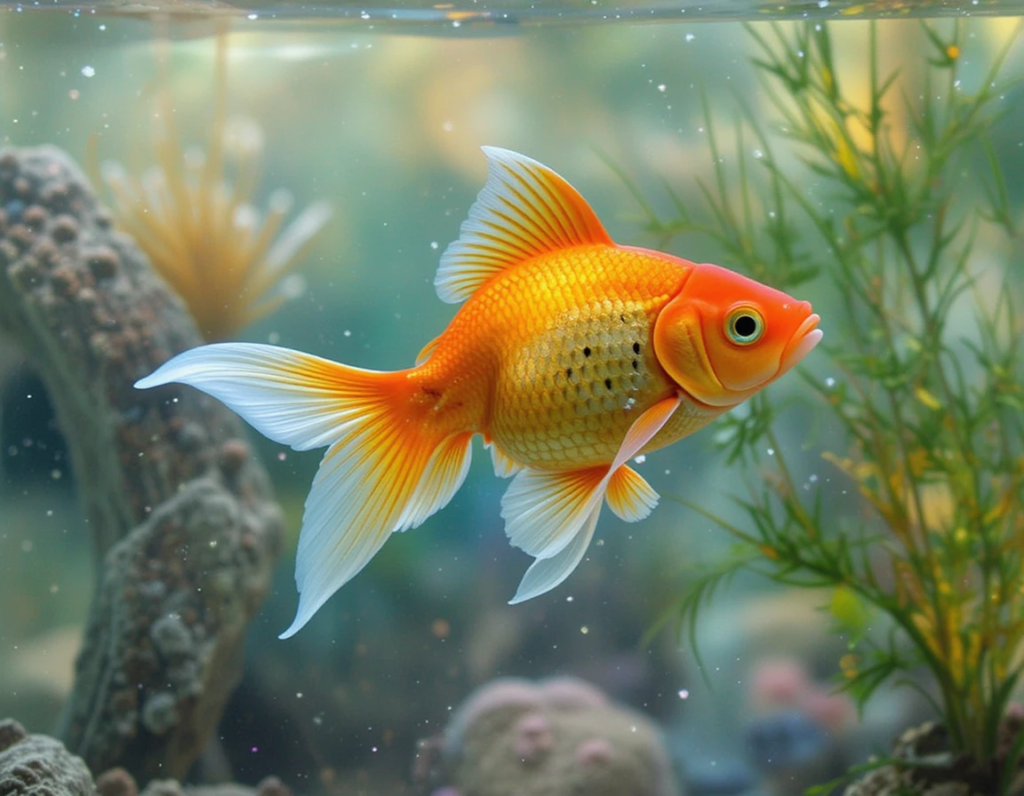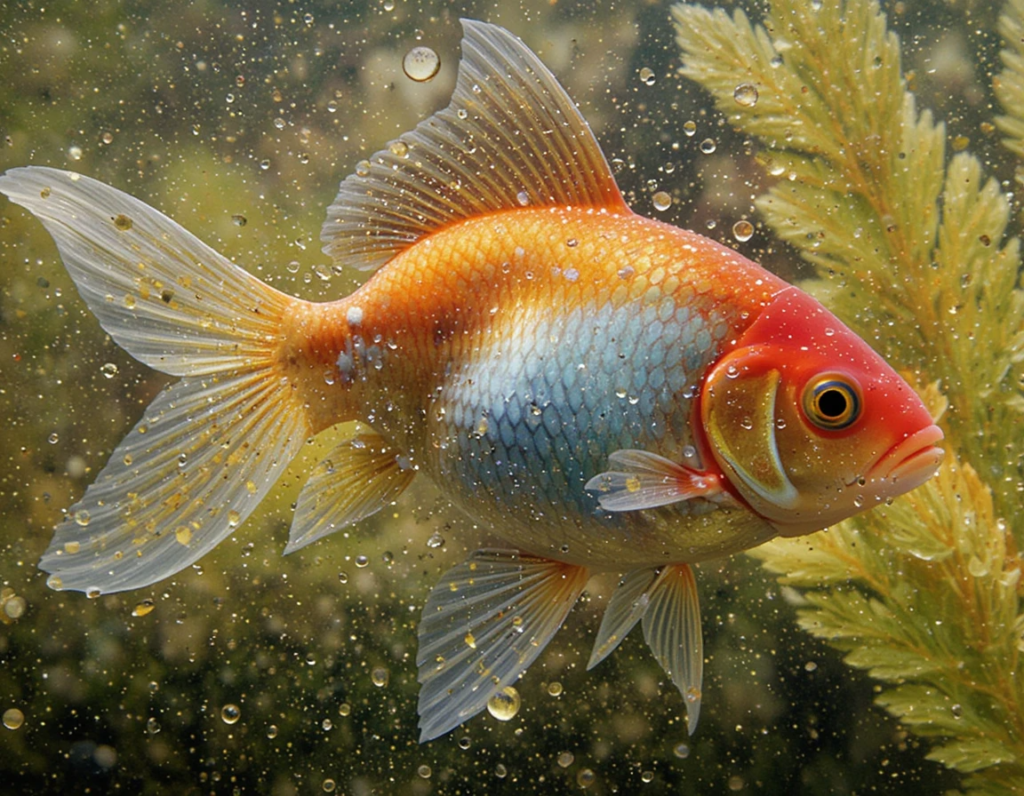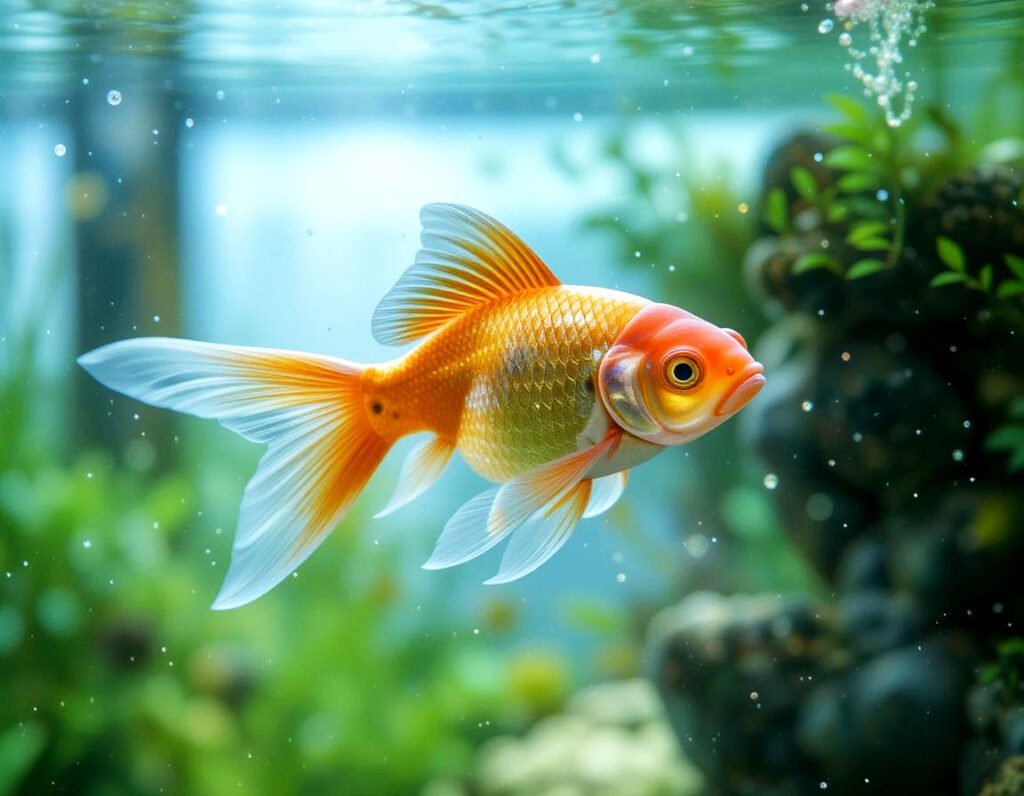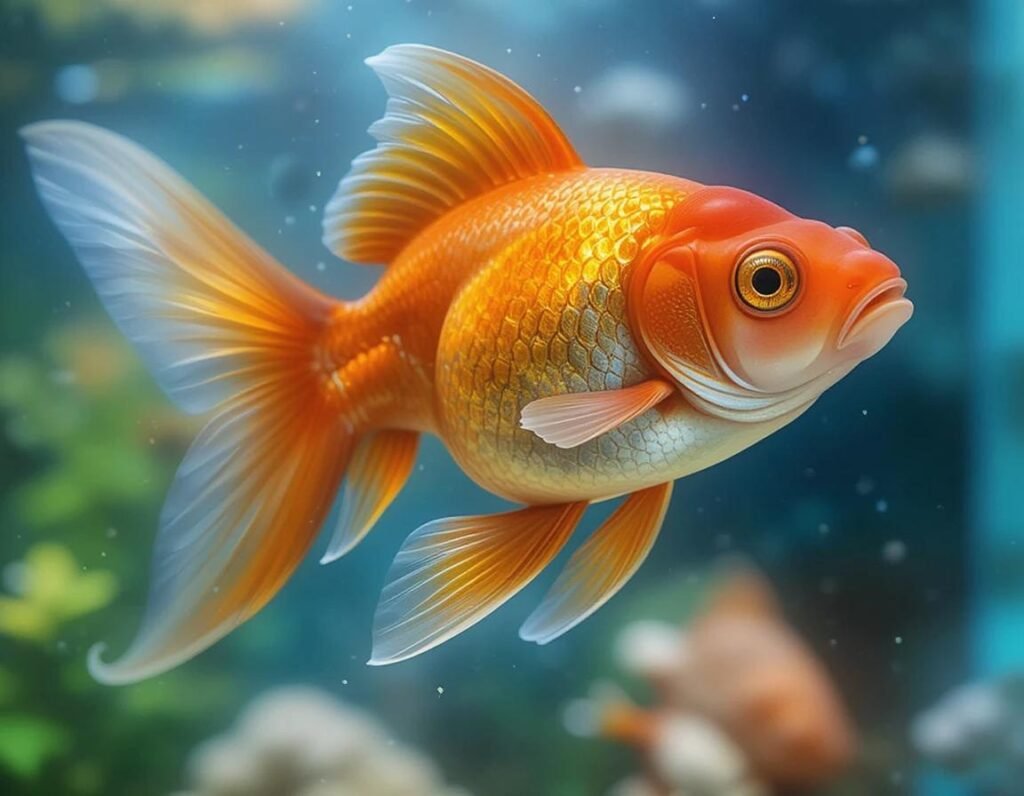
If you’re thinking of bringing a goldfish into your life, you’ve probably got a lot of questions. One common question that comes up a lot is: Do goldfish need a heater? It’s a good question, especially since heating can be a little confusing. After all, aren’t goldfish “coldwater fish”? Don’t they live in outdoor ponds where the water is naturally cold? Let’s break it down in simple terms, and add a little humor to the mix—because, who doesn’t like a good laugh while fishkeeping?
Goldfish and Their Temperature Needs
First, let’s clear something up. Goldfish are often labeled as “coldwater” fish, but this doesn’t mean they like icy waters or frozen lakes. They actually prefer cool water, but not freezing cold, so a heater might not always be necessary. The temperature range that’s just right for your goldfish is typically between 65°F and 75°F (18°C to 24°C). This is where they feel most comfortable and thrive.
So, Do Goldfish Need a Heater or Not?
It depends on where you live and the temperature of your home. Here’s the rundown:
1. In Warmer Climates:
If you live somewhere with warm weather or you keep your home toasty, a heater may not be necessary for your goldfish. They’re pretty adaptable and can live comfortably in temperatures around 70°F. However, if your home tends to dip below 65°F (18°C), you might want to invest in a small aquarium heater. Goldfish can tolerate cooler temps, but if the water gets too cold, it can slow down their metabolism, which can lead to sluggishness and possible health issues.
2. In Cooler Climates:
For those of us who experience cold winters, keeping the tank in a consistent, comfortable range can be tricky. If the temperature in your home drops below 65°F, a heater will make sure your goldfish stays happy and healthy. Coldwater fish like goldfish do better when they don’t have to deal with fluctuating water temperatures, which can stress them out and make them more susceptible to illness.
3. Indoor Tanks vs Outdoor Ponds:
If your goldfish are living in an indoor tank and the room temperature stays on the cooler side (say, below 65°F), a heater is a good idea. If, however, your goldfish live in an outdoor pond, the temperature fluctuations can be a natural part of their environment. They’ll likely be fine without a heater, especially in temperate climates where winter temperatures don’t dip too low. Just make sure their pond is deep enough to avoid freezing over completely.
Signs Your Goldfish Might Need a Heater
How do you know if your goldfish needs a heater? It’s all about observation. Goldfish are pretty good at telling you when something isn’t right. Here are a few signs that might indicate they could benefit from a little warmth:
- Sluggish Movement: If your goldfish seems to be swimming slower than usual, this could be because the water is too cold, and their metabolism is slowing down. A heater can give them the boost they need to be more active.
- Loss of Appetite: Goldfish are usually little eating machines. If your goldfish isn’t eating like it used to, a colder-than-ideal tank might be to blame. Fish are less active in cold water, so they won’t have as much of an appetite.
- Increased Stress: Cold water can make fish more susceptible to stress, which weakens their immune systems. If you notice your goldfish hiding more often or acting more stressed than usual, it might be time to raise the water temperature a few degrees.
What Kind of Heater Should You Get for Your Goldfish?
If you decide your goldfish could use a heater, there are a couple of things to keep in mind:
- Small Adjustable Aquarium Heater: A small, adjustable heater that can be set to a temperature between 65°F and 75°F is ideal for goldfish. A submersible heater works best for stability.
- Thermometer: Always pair your heater with a reliable thermometer to monitor the water temperature. Goldfish don’t like drastic changes in temperature, so it’s important to make sure the water stays consistent.
- Avoid Overheating: Be careful not to overheat your goldfish’s water, as they’re not tropical fish that thrive in warm water. Goldfish can start to feel stressed if the water temperature climbs too high, which can lead to health problems.
Is It Possible to Overheat Your Goldfish?
While goldfish are coldwater fish, that doesn’t mean they can’t be affected by water that’s too warm. If your heater is set too high, or the room temperature is too hot, it can actually stress out your fish. In fact, goldfish are more tolerant of cool temperatures than of hot ones.
Overheating can cause a number of issues, such as:
- Increased metabolism leading to faster waste production, which could pollute the tank.
- Faster aging of your fish—yes, goldfish can age faster in warm water!
- Stress, which can lead to weakened immune systems and make your goldfish more prone to disease.

Additional Tips for Keeping Goldfish Healthy
If you’re planning to use a heater in your goldfish tank or just want to ensure your goldfish are living their best life, here are a few more tips to keep them happy and healthy.
1. Monitor Water Quality
A heater can keep your goldfish comfortable, but it’s important to remember that the water quality is just as crucial. Regularly check the pH levels, ammonia levels, and make sure the tank is well-filtered. Poor water quality can stress out your fish, regardless of the temperature. Goldfish are messy eaters, so good filtration and water changes are key.
2. Don’t Overfeed
Goldfish are notorious for their love of food, but overfeeding them can lead to health problems and foul water. Make sure you’re feeding them in moderation—typically two to three small meals a day. This will also help keep the water cleaner, which is important for maintaining a stable temperature environment.
3. Consider Tank Size
Heaters can be a game-changer in keeping your goldfish comfortable, but the size of the tank plays an equally important role. Goldfish need space to swim and grow. A minimum of 20 gallons is recommended for one goldfish, with an additional 10 gallons for each additional fish. Goldfish get quite large, so giving them enough room to stretch their fins is essential for long-term health.
4. Invest in a Good Thermometer
Having a reliable thermometer is essential for monitoring the temperature in your goldfish tank. Whether you’re using a heater or relying on natural room temperature, you’ll want to keep a close eye on the water. Sudden temperature changes can stress out goldfish and even lead to illness. Stick a thermometer in your tank and check it regularly to ensure your fish are living in the perfect environment.
5. Avoid Rapid Temperature Changes
Goldfish don’t like drastic fluctuations in temperature. If you’re adjusting the temperature in the tank, do so gradually. A sudden rise or drop can make your goldfish go into shock, leading to health issues. That’s where the thermostat on your heater comes in handy, helping to keep things stable and safe for your fish.
Fun Fact About Goldfish and Temperature
Did you know that goldfish can live in ponds without heaters during the winter? In fact, goldfish are coldwater fish and can tolerate cooler temperatures in outdoor ponds, as long as the water doesn’t freeze over completely. In nature, they’re accustomed to fluctuating temperatures, and some can even survive winter months with ice covering the pond. So, if you’re ever wondering if your goldfish are tough little creatures, just picture them hanging out in a pond covered in ice—pretty cool, right?
In Conclusion: To Heater or Not to Heater?
Whether you need a heater for your goldfish depends on the temperature of your home and your tank’s environment. If your home stays warm and the tank temperature stays between 65°F and 75°F, your goldfish should be fine without a heater. But if you live in a cooler climate, or if your tank is located in a drafty area, a heater can be a great investment to keep your goldfish comfortable and healthy.
As always, consistency is key. Goldfish like stable water conditions, and a heater can provide just that. Plus, your goldfish will appreciate the warmth, which will help them stay active and less stressed. A little heater might just be the thing to keep your goldfish living their best life, swimming around with a smile on their little fish faces!
FAQs About Goldfish and Heaters
1. Can goldfish survive without a heater in the winter?
Answer: Yes, goldfish can survive without a heater if the water doesn’t get too cold. If your tank or pond remains at a comfortable cool temperature between 65°F and 75°F (18°C to 24°C), your goldfish will be fine. However, if temperatures drop below 65°F (18°C) for extended periods, a heater is recommended to maintain a stable environment.
2. What’s the minimum temperature goldfish can tolerate?
Answer:Goldfish can tolerate temperatures as low as 50°F (10°C), but this is pushing their limits. While they won’t outright freeze at these temperatures, their metabolism slows down significantly, and they become more susceptible to diseases. So, for optimal health, it’s best to keep the water temperature between 65°F and 75°F.
3. Will a heater stress my goldfish?
Answer: If the temperature is set correctly and there are no sudden fluctuations, a heater shouldn’t stress your goldfish. In fact, a heater can prevent stress caused by temperature changes. However, if the heater is malfunctioning or overheating the water, this can cause stress. So, make sure to regularly check the temperature to avoid this!
4. Can I use a heater in an outdoor pond for goldfish?
Answer: Yes, it is possible to use a pond heater in an outdoor pond, especially in colder climates. A heater can keep the water from freezing over, allowing your goldfish to thrive in the winter months. But make sure the heater is designed for outdoor use, and ensure the pond is deep enough to avoid the risk of freezing.
5. How do I know if my goldfish’s tank needs a heater?
Answer: If the water temperature in your tank regularly drops below 65°F (18°C) or if you notice that your goldfish is less active or eating less, it may be a sign that they need a heater. If your home is cool and you’re using a thermometer that shows temperatures consistently on the lower end of the spectrum, a heater will help your fish stay active and healthy.
6. What are the signs that my goldfish is too warm?
Answer: While goldfish prefer cooler water, they can still suffer from overheating. If the water temperature goes above 75°F, your goldfish might show signs of distress. Watch out for behaviors like heavy breathing, swimming near the surface constantly, and increased fin movement. If the temperature is too high, you may notice rapid aging and a weaker immune system in your fish.
7. How do I choose the right heater for my goldfish tank?
Answer: Choose a submersible aquarium heater that has an adjustable temperature setting. For a 10-gallon tank, a 50-watt heater will usually suffice, while larger tanks might need 100-watt or higher. Look for a heater with a built-in thermostat to ensure the water stays within the right temperature range. Always use a thermometer to double-check the temperature!
8. Can I use a heater in a goldfish bowl?
Answer: While it’s generally not recommended to keep goldfish in a bowl, if you do, a small heater can help keep the water at the right temperature. However, goldfish need space to swim and thrive, so it’s best to invest in a properly sized tank (at least 20 gallons for one goldfish) with a good filter and a heater if necessary.
In Conclusion: To Heater or Not to Heater?
Whether you need a heater for your goldfish depends on the temperature of your home and your tank’s environment. If your home stays warm and the tank temperature stays between 65°F and 75°F, your goldfish should be fine without a heater. But if you live in a cooler climate, or if your tank is located in a drafty area, a heater can be a great investment to keep your goldfish comfortable and healthy.
As always, consistency is key. Goldfish like stable water conditions, and a heater can provide just that. Plus, your goldfish will appreciate the warmth, which will help them stay active and less stressed. A little heater might just be the thing to keep your goldfish living their best life, swimming around with a smile on their little fish faces!


